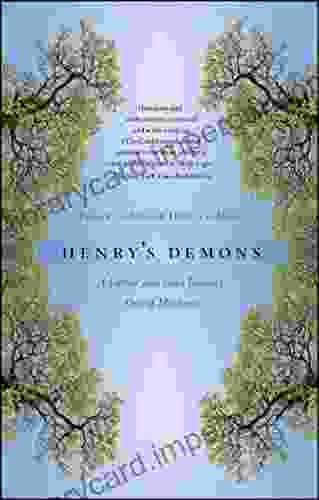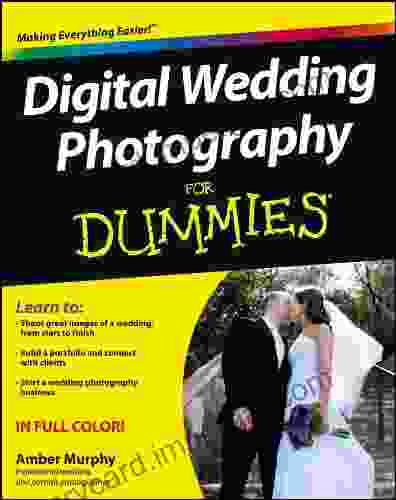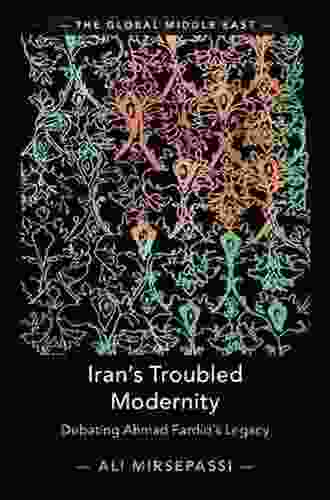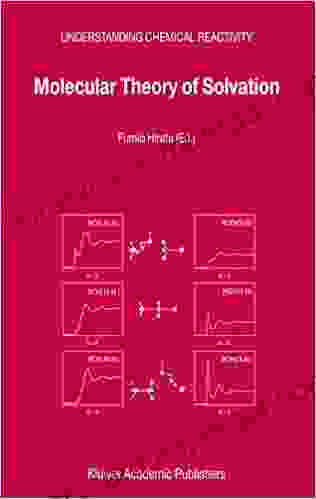Debating Ahmad Fardid's Legacy: The Global Middle East

Ahmad Fardid was an Iranian philosopher who is considered to be one of the most important thinkers of the 20th century. His work has had a profound impact on Islamic thought and politics, and his ideas continue to be debated today.
4 out of 5
| Language | : | English |
| File size | : | 1807 KB |
| Text-to-Speech | : | Enabled |
| Screen Reader | : | Supported |
| Enhanced typesetting | : | Enabled |
| Word Wise | : | Enabled |
| Print length | : | 381 pages |
Fardid was born in 1902 in Tehran. He studied philosophy at the University of Tehran and later in Paris. After returning to Iran, he taught at the University of Tehran and the University of Mashhad. He was also a member of the Iranian Academy of Sciences.
Fardid's work is characterized by its critique of Western thought and its emphasis on the importance of Islamic tradition. He argued that Western thought was based on a false dichotomy between the sacred and the secular, and that this dichotomy had led to the decline of the West. He also argued that Islamic tradition was the only true alternative to Western thought, and that it could provide a basis for a just and prosperous society.
Fardid's ideas have been influential in a number of Islamic movements, including the Iranian Revolution. His work has also been criticized by some Western scholars, who argue that it is anti-modern and anti-democratic.
Fardid's Critique of Western Thought
Fardid's critique of Western thought is based on his understanding of the history of Western philosophy. He argues that Western philosophy began with the Greeks, who developed a dualistic understanding of the world. This dualism, which divided the world into the sacred and the secular, the mind and the body, and the male and the female, has been a fundamental characteristic of Western thought ever since.
Fardid argues that this dualism has led to a number of problems in Western society. These problems include the decline of religion, the rise of materialism, and the alienation of individuals from their community. He also argues that this dualism has led to the West's domination of the non-Western world.
Fardid's Emphasis on Islamic Tradition
In contrast to his critique of Western thought, Fardid emphasizes the importance of Islamic tradition. He argues that Islamic tradition is based on a holistic understanding of the world. This holistic understanding, which does not divide the world into the sacred and the secular, the mind and the body, and the male and the female, is the foundation of a just and prosperous society.
Fardid argues that Islamic tradition is the only true alternative to Western thought. He argues that Islamic tradition can provide a basis for a society that is both just and prosperous.
The Debate over Fardid's Legacy
Fardid's work has been the subject of much debate. Some scholars have praised his work for its originality and its insights into the problems of Western society. Other scholars have criticized his work for its anti-modernism and its anti-democratic tendencies.
The debate over Fardid's legacy is likely to continue for many years to come. His work is a complex and challenging, and it is open to a variety of interpretations. However, there is no doubt that Fardid is one of the most important thinkers of the 20th century, and his work will continue to be debated for many years to come.
Ahmad Fardid was an Iranian philosopher who is considered to be one of the most important thinkers of the 20th century. His work has had a profound impact on Islamic thought and politics, and his ideas continue to be debated today.
Fardid's work is characterized by its critique of Western thought and its emphasis on the importance of Islamic tradition. He argued that Western thought was based on a false dichotomy between the sacred and the secular, and that this dichotomy had led to the decline of the West. He also argued that Islamic tradition was the only true alternative to Western thought, and that it could provide a basis for a just and prosperous society.
Fardid's ideas have been influential in a number of Islamic movements, including the Iranian Revolution. His work has also been criticized by some Western scholars, who argue that it is anti-modern and anti-democratic.
The debate over Fardid's legacy is likely to continue for many years to come. His work is a complex and challenging, and it is open to a variety of interpretations. However, there is no doubt that Fardid is one of the most important thinkers of the 20th century, and his work will continue to be debated for many years to come.
4 out of 5
| Language | : | English |
| File size | : | 1807 KB |
| Text-to-Speech | : | Enabled |
| Screen Reader | : | Supported |
| Enhanced typesetting | : | Enabled |
| Word Wise | : | Enabled |
| Print length | : | 381 pages |
Do you want to contribute by writing guest posts on this blog?
Please contact us and send us a resume of previous articles that you have written.
 Book
Book Novel
Novel Page
Page Chapter
Chapter Text
Text Story
Story Genre
Genre Reader
Reader Library
Library Paperback
Paperback E-book
E-book Magazine
Magazine Newspaper
Newspaper Paragraph
Paragraph Sentence
Sentence Bookmark
Bookmark Shelf
Shelf Glossary
Glossary Bibliography
Bibliography Foreword
Foreword Preface
Preface Synopsis
Synopsis Annotation
Annotation Footnote
Footnote Manuscript
Manuscript Scroll
Scroll Codex
Codex Tome
Tome Bestseller
Bestseller Classics
Classics Library card
Library card Narrative
Narrative Biography
Biography Autobiography
Autobiography Memoir
Memoir Reference
Reference Encyclopedia
Encyclopedia Alice Echols
Alice Echols Albert Bandura
Albert Bandura Lori Schafer
Lori Schafer Jason Gibbs
Jason Gibbs Alberto Ledesma
Alberto Ledesma Alfred Hutton
Alfred Hutton Ron Westrum
Ron Westrum Alice Wright
Alice Wright Ali Abdullatif Ahmida
Ali Abdullatif Ahmida Allen J Bard
Allen J Bard Oscar E Gilbert
Oscar E Gilbert Edward Everett
Edward Everett Siegfried Hunklinger
Siegfried Hunklinger Lionel Casson
Lionel Casson Alisa Perren
Alisa Perren Don Fitz
Don Fitz Amanda Foreman
Amanda Foreman James R Lewis
James R Lewis Alana Pierini
Alana Pierini Alastair Fitter
Alastair Fitter
Light bulbAdvertise smarter! Our strategic ad space ensures maximum exposure. Reserve your spot today!

 Carter HayesExpanding The Definition Of Progress: A Journey Towards A More Fulfilling and...
Carter HayesExpanding The Definition Of Progress: A Journey Towards A More Fulfilling and... Carlos DrummondFollow ·9.5k
Carlos DrummondFollow ·9.5k Eric HayesFollow ·19.6k
Eric HayesFollow ·19.6k Curtis StewartFollow ·8.1k
Curtis StewartFollow ·8.1k Allen ParkerFollow ·6.4k
Allen ParkerFollow ·6.4k Shaun NelsonFollow ·6.2k
Shaun NelsonFollow ·6.2k Yukio MishimaFollow ·18.4k
Yukio MishimaFollow ·18.4k Christopher WoodsFollow ·10.4k
Christopher WoodsFollow ·10.4k Nathaniel HawthorneFollow ·13.9k
Nathaniel HawthorneFollow ·13.9k

 Ignacio Hayes
Ignacio HayesUnveiling the Secret Spitfires: Britain's Hidden Civilian...
: The Untold Story of Britain's...

 Scott Parker
Scott ParkerLiving With Schizophrenia: A Father and Son's Journey
Schizophrenia is a serious...

 Ted Simmons
Ted Simmons"From Sign Up to Pass Out": The Shocking and Immersive...
Step into the...

 John Keats
John KeatsThe Development of Biographies and Philosophical...
The Alluring...

 Dan Brown
Dan BrownCapture Your Dream Wedding with Digital Wedding...
Your wedding day is...
4 out of 5
| Language | : | English |
| File size | : | 1807 KB |
| Text-to-Speech | : | Enabled |
| Screen Reader | : | Supported |
| Enhanced typesetting | : | Enabled |
| Word Wise | : | Enabled |
| Print length | : | 381 pages |












